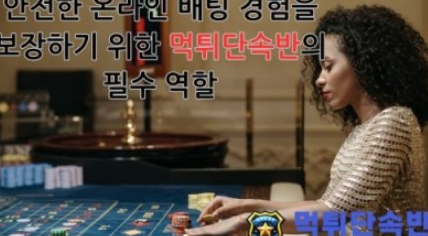
In the world of business, data has become one of the most valuable resources. Companies rely on data to guide decisions, forecast trends, and gain a competitive edge. However, the accuracy and integrity of this data are just as important as the data itself. Verification Toto, or data that has been thoroughly checked and validated, plays a crucial role in ensuring that businesses can make informed decisions.
In this article, we will explore the importance of verified data and how it enhances decision-making processes, minimizes risks, and contributes to long-term success.
The Power of Verified Data
Data-driven decision-making is a cornerstone of modern business strategies. From determining market opportunities to improving operational efficiency, accurate data informs every aspect of a business. However, data is only as good as its quality. Verified data means that the information has been cross-checked, validated, and confirmed to be accurate. It helps businesses avoid the pitfalls of relying on incorrect, outdated, or biased information.
Verification Toto (검증토토) data provides a solid foundation for organizations to base their strategies and actions on. Without it, businesses risk making decisions that could lead to poor outcomes, such as missed opportunities, wasted resources, or reputation damage. Therefore, ensuring that data is validated and trustworthy is vital for businesses that want to succeed in an increasingly data-driven world.
Why Verified Data Matters
1. Improved Decision-Making Accuracy
The accuracy of decisions hinges on the quality of the data being used. Verified data ensures that decision-makers are working with information that is both reliable and up to date. This reduces the likelihood of errors and biases that can arise from faulty data. Whether it’s evaluating customer behavior, determining product viability, or assessing financial performance, having verified data enables companies to make more accurate decisions with confidence.
For example, when a company looks at verified sales data, they can make better predictions about future trends, allowing them to plan inventory, marketing campaigns, and staffing requirements more effectively. Inaccurate data could lead to overproduction or underproduction, ultimately affecting profitability.
2. Enhanced Risk Management
In the business world, risks are inevitable, but managing them effectively requires accurate information. Verified data allows businesses to identify potential risks more accurately and take proactive measures to mitigate them. For instance, in the financial sector, verified data regarding market trends, consumer behavior, or competitor activity can help institutions assess risk exposure more clearly and make adjustments before problems escalate.
Similarly, businesses in industries such as healthcare, logistics, and retail rely on verified data to ensure that their operations run smoothly and safely. With incorrect or unverifiable data, these organizations could face serious operational disruptions, regulatory violations, or even legal liabilities.
3. Better Customer Insights
Verified data enhances a company’s ability to understand its customers and their needs. By analyzing verified customer data, businesses can gain insights into purchasing behavior, preferences, and pain points, which are essential for designing targeted marketing strategies and improving products or services.
Without verified data, a business might rely on incorrect customer profiles, leading to ineffective marketing campaigns and lost revenue. Accurate, verified data allows businesses to tailor their offerings to meet specific customer demands, improving satisfaction and loyalty.
4. Stronger Strategic Planning
Strategic planning requires a long-term vision and an understanding of key market trends. Verified data helps businesses to assess the current market landscape and forecast future developments accurately. This knowledge helps organizations set realistic goals, allocate resources efficiently, and identify opportunities for growth.
By relying on verified data, companies can avoid costly mistakes and pursue strategies that align with their strengths and market realities. For instance, a company looking to expand into a new market can rely on verified data to understand the competitive landscape, consumer preferences, and local regulations, ensuring that their entry strategy is both informed and effective.
How to Ensure Data is Verified
To ensure that data is verified, businesses can implement several practices:
Data Validation: Implementing checks and balances during data entry or collection can help identify errors early in the process.
Cross-Referencing Sources: Data should be cross-checked with multiple reliable sources to confirm its accuracy.
Automated Tools: Utilizing automated data verification tools can help businesses validate data in real time, reducing the chance of human error.
Regular Audits: Periodically auditing data for accuracy and relevance ensures that the business is working with the most up-to-date information.
Conclusion
Verified data is an indispensable asset for businesses aiming to make informed, effective decisions. By ensuring that the data driving key business decisions is accurate and trustworthy, companies can enhance their decision-making accuracy, manage risks, gain better customer insights, and plan strategically for future growth. In today’s fast-paced and data-centric environment, investing in verified data is not just a good practice—it’s essential for maintaining a competitive edge and fostering long-term business success.


